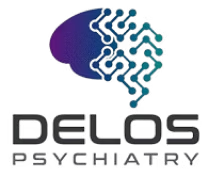Depression Treatment
- Home
- Depression Treatment
Depression Treatment Specialist in Boulder, CO
Learn more about the treatments of depression at Delos Psychiatry. To consult our psychiatrists, call us or schedule an appointment online. We are conveniently located at 2501 Walnut St. Suite 204 Boulder, CO 80302. We serve patients from Boulder CO, Denver CO, Silverthorne CO, Longmont CO, Superior CO, Lafayette CO, Broomfield CO, Erie CO, and Niwot CO.
What are the types of depression?
There are many types of depression. Some are caused by chemical changes in the brain while others may be caused by events experienced in a person’s life. Whichever the type or nature of the depression, it is important to speak to a medical professional for a proper diagnosis. Different types of depression might be treated in different ways.
The major depressive disorder manifests in individuals by displaying near-constant feelings of depression and displaying its associated symptoms. It is typically defined by a lack of motivation and hopelessness and the behaviors associated with those characters. In extreme cases, thoughts of suicide may be evident. Persistent depressive disorder is a depression that lasts longer than two years.
Bipolar disorder is normally characterized by ongoing and unpredictable mood swings. Mood swings may include manic highs and extreme lows that mirror major depressive disorder. The seasonal affective disorder is a period, usually during the dark winter months, where major depressive disorder symptoms display. Postpartum depression occurs in women in the period following childbirth, some men also experience depression during this period
The premenstrual dysphoric disorder affects some women at the beginning of their period and displays depressive symptoms. Situational depression or stress response syndrome occurs when external life events are causing feelings of depression. Psychotic depression combines depressive symptoms with symptoms of psychosis including paranoia, hallucinations, and delusions.
What causes depression?
Depression is a complex condition that can originate from many different places. Sometimes factors are genetic, external, or reflective of a chemical imbalance of the brain. For others, depression may manifest seemingly at random.
There are, however, some genetic predispositions, behaviors, life events, and traumas that can boost the risk of depression for many people. Some substance misuse can also be linked to depression as nearly 30 percent of individuals with substance use issues have depression, whether the depression contributed to the substance use or the substance use contributed to the depression is difficult to say. Isolation, loneliness, and other personal problems can increase susceptibility to mental health issues such as depression.
According to the World Health Organization, there was a 25% increase in anxiety and depression during the first year of the COVID-19 pandemic, a portion of this associated with lockdowns and isolation. Women, according to studies, are also twice as likely as men to be diagnosed with depression.
Family history of mental illness or mental health issues also seems to correlate with an increased likelihood of developing depression. Traumatic events such as childhood abuse can trigger the onset of depression when they occur or later in life. And major life events or changes, positive or negative, can elicit depressive responses.

What are the symptoms of depression?
Most individuals feel sad or down from time to time but when this feeling persists most of the time it may be indicative of clinical depression.
Different classifications of depression display different symptoms but the most common symptoms across types of depression include the loss of pleasure or interest in activities, trouble sleeping, fatigue, weight gain or weight loss, agitation, restlessness, feeling guilty or worthless, mental or physical sluggishness, difficulty making decisions or concentrating, and thoughts of suicide. Moreover, patients displaying five or more of these symptoms may be suffering from a major depressive disorder.
What are my treatment options for depression?
A multifaceted approach of medication and therapy is typically used to treat depression. Antidepressants work by targeting dopamine, serotonin, and norepinephrine levels which don’t function properly in individuals with depression. Medication is typically administered along with talk or behavioral therapy to help establish new and healthier patterns and help patients take control of their depression. There is a range of therapeutic and pharmaceutical treatment options available, a medical professional will work with the patient to determine which course of action is best for them. Delos Psychiatry’s highly trained staff is available for patients in Boulder, CO, and can help them take control of their condition. For more information, call us or schedule an appointment online. We are conveniently located at 2501 Walnut St. Suite 204 Boulder, CO 80302. We serve patients from Boulder CO, Denver CO, Silverthorne CO, Longmont CO, Superior CO, Lafayette CO, Broomfield CO, Erie CO, and Niwot CO


